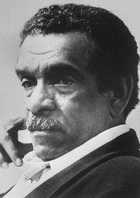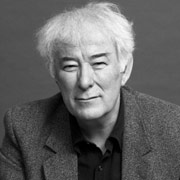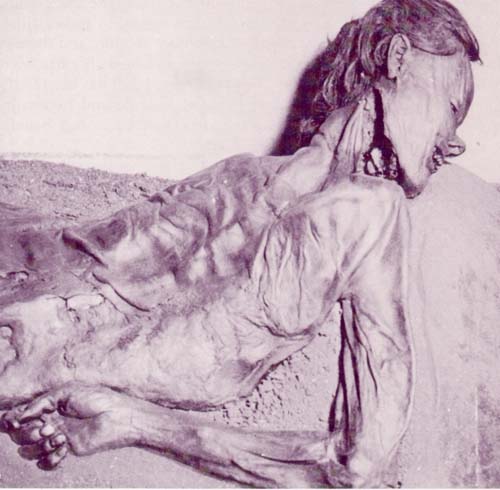Walcott and Heaney
Derek Walcott
To read "A Far Cry from Africa" (2771) and From "The Schooner Flight" (2772)
 born 1930 at Castries, St
Lucia, an isolated Caribbean island (French speaking; Walcott brought up
in English);
born 1930 at Castries, St
Lucia, an isolated Caribbean island (French speaking; Walcott brought up
in English); - father a Bohemian artist, died when Walcott was very young;
- mother Alix a teacher, very well read;
- educated at St Mary's College, Castries, then University College of the West Indies in Kingston, Jamaica
- Walcott worked as a teacher and journalist, before making his reputation as a poet and playwright; a teacher at the University of Boston;
- 1992 Nobel Prize for literature
Derek
Walcott, from The Literary Encyclopedia (in part)
- Born of mixed heritage and educated within the British colonial system, Walcott's writing deals with matters of hybridity and cultural schizophrenia.
- Walcott describes being taught "English literature as my natural inheritance" with the effect that the "snow and the daffodils" of Wordsworth become "more real than the heat and oleander" of the West Indies
- Beneath a colonial version of history is the violence of imperialism as "whole generations died, unchristened" in a "history thickening with amnesia" or colonial genocide. . . the sea becomes a metaphor for historical erasure
- "In the Caribbean, history is irrelevant, not because it is not being created, or because it was sordid; but because it has never mattered. What has mattered is the loss of history, the amnesia of the races, what has become necessary is imagination as necessity, as invention."
Conflicting Loyalties in "A Far Cry from Africa"
- Walcott feels foreign in both cultures due to his lack of "pure" blood
- depicts Africa and Britain in the standard roles of the vanquished and the conqueror, although he portrays the cruel imperialistic exploits of the British without creating sympathy for the African tribesmen
- He remains partial to the African terrain and way of life, while he prefers the English language and literary tradition.
Post-colonial literatures and English Studies
- The historical moment which saw the emergence of 'English' as an academic discipline also produced the nineteenth-century colonial form of imperialism
- British colonial administrators, provoked by missionaries on the one hand and fears of native insubordination on the other, discovered an ally in English literature to support them in maintaining control of the natives under the guise of a liberal education
- A 'privileging norm' was enthroned at the heart of the formation of English Studies as a template for the denial of the value of the 'peripheral', the 'marginal', the 'uncanonized'. Literature was made as central to the cultural enterprise of Empire as the monarchy was to its political formation.
- in most post-colonial nations (including the West Indies and India) the nexus of power involving literature, language, and a dominant British culture has strongly resisted attempts to dismantle it
Language
- The imperial education system installs a 'standard' version of the metropolitan language as the norm, and marginalizes all 'variants' as impurities
- We need to distinguish between what is proposed as a standard code, English (the language of the erstwhile imperial centre), and the linguistic code, english, which has been transformed and subverted into several distinctive varieties throughout the world.
Place and displacement
- A major feature of post-colonial literatures is the concern with place and displacement. It is here that the special post-colonial crisis of identity comes into being; the concern with the development or recovery of an effective identifying relationship between self and place.
- [the] need . . . to escape from the implicit body of assumptions to which English was attached, its aesthetic and social values, the formal and historically limited constraints of genre, and the oppressive political and cultural assertion of metropolitan dominance, of centre over margin
Walcott in his own words (end of file)
- "One didn't develop an English accent in speech; one kept as close as possible to an inflection that was West Indian. The aim was that a West Indian or an Englishman could read a single poem, each with this own accent, without either one feeling that is was written in dialect."
Heaney
To read "Digging" (2789), "The Forge" (2790), "Punishment" (2792), From "Station Island" (2797)
- born 1939 on a farm near Castledawson, N. Ireland; educated St. Columb's College, Derry, Queen's University, Belfast
- 1963 became a lecturer at St Josephs Teacher Training College, Belfast
- 1966 became lecturer in Modern English Literature at Queen's University, Belfast
- 1966 Death of a Naturalist
- 1981 appointed visiting professor at Harvard University
- 1989-1994 elected Professor of Poetry at the University of Oxford
- 1995 Nobel Prize for literature
from Nobel lecture:

